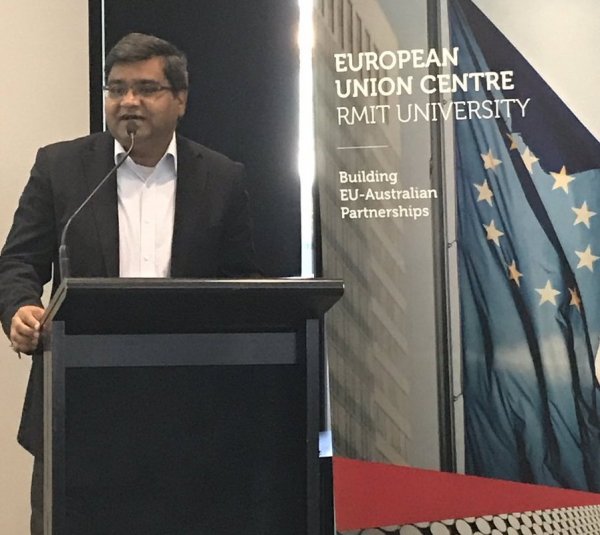The impact of climate change on Australia and our surrounding region in the next 50 years will be significant – but research shows that women are likely to suffer the consequences more significantly than men.
Dr Imran Ahmad was, until very recently, the Director of Future Earth Australia at the Australian Academy of Science, where he was responsible for leading and developing a global sustainability initiative in Australia and the Oceania region. According to Ahmad current research confirms that climate change is no longer a ‘future’ problem. “We are now living with climate change, and if we do not take action, it is only going to get worse. Australian lifestyles will be heavily impacted, particularly for older and vulnerable populations, where we will have to provide more care for them to ensure that they remain safe.”
“Women bear significant impacts, particularly in vulnerable groups, where they have significant economic and domestic responsibilities…”
Among these vulnerable demographics women are likely to experience climate affects more than men. According to the UN, women make up a higher proportion of the population in developing countries, which means that droughts, uncertain rainfall and natural disasters will have a significant impact on their access to food, shelter and other resources.

Dr Imran Ahmad of Future Earth Australia says that gender inequality will play a part in how Australians experience climate change.
But even in a first world country like Australia, Dr Ahmad says climate change will have a gendered affect. “Women bear significant impacts, particularly in vulnerable groups, where they have significant economic and domestic responsibilities and in some cases are the principle care or economic providers.”
… increased care needs of older and vulnerable populations as a result of climate related disasters will largely fall on women.
The 2016 Census showed that women spend on average between 5 and 14 hours a week on unpaid domestic care work, as compared to men’s 5 hours or less – this gender gap means that increased care needs of older and vulnerable populations as a result of climate related disasters will largely fall on women.
“There is an extensive literature on the gender impacts of climate change and the conclusive evidence suggests that women have higher impacts than men particularly in economically and socially disadvantaged groups,” Dr Ahmad says.

In Australia, this would include women living below the poverty line, women at risk of homelessness (which is a growing population), and crucially, women living in regional and rural Australia where drought and unstable rainfall is already having an impact.
So, how can we address this issue, and what role will gender play?
“We are a G-20 country and how do we show leadership and best practices on climate change that other countries can learn from?”
“Education and raising awareness on this issue is critical in my view. Mainstreaming adaptation in policy making is one key outcome that I would like to see happening in reality. We are living in an ‘age of adaptation’,” Dr Ahmad says.
In comparison to our Pacific Island neighbours – which will experience significant economic and social impacts from climate change while having less capacity and resources to tackle those challenges – its easy to assume Australia will be better placed to address the sort of gender inequality exacerbated by climate change. But according to Dr Ahmad, we still have a great deal of thinking to do around this issue. “I think this is a question that we all need to ask ourselves. We are a G20 country and how do we show leadership and best practices on climate change that other countries can learn from? Gender dimensions are absolutely critical.”
In summary, it would seem we still have a great deal of work to do. And policy considerations around how climate change may impact diverse groups differently is an important starting point.




